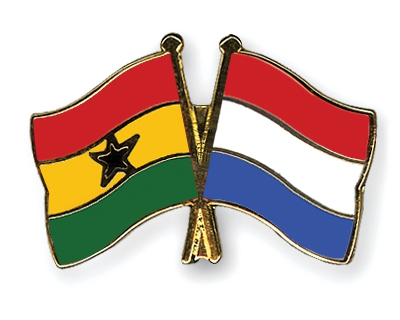 The Netherlands Embassy is leading discussions aimed at designing a complete production chain to deliver valuable climate, weather, and water services towards climate resilience in Ghana.
The Netherlands Embassy is leading discussions aimed at designing a complete production chain to deliver valuable climate, weather, and water services towards climate resilience in Ghana.
The move, which falls under the TWIGA project, an European Commission funded research and development programme, is to support major investments to make Ghana and West Africa more resilient with respect to climate change and variability.
Briefing the Ghana News Agency (GNA) in Accra on Tuesday, Dr Frank Annor, the Chief Executive Officer of the Netherlands-based Trans African Hydro Meteorological Observatory (TAHMO), said the TWIGA programme was under the European Commission’s Horizon 2020 programme, aimed at developing in situ observation networks using new sensors and methods to enhance services.
The TWIGA project looks at transforming weather and water services in Africa of which Ghana, Mozambique, Kenya, Uganda and South Africa were part of the beneficiaries.
The Netherlands Embassy has, therefore, hosted a roundtable meeting in Accra, attended by end-users and some decision-makers and TWIGA staff who would build the actual services.
Representatives from the research and financial institutions including rural and urban banks, telecommunication companies, Non-governmental organisations, farmer-based organisations and universities participated.
Dr Annor said the TWIGA is a five-million Euros funded project from 2018 to 2021, to steer developments that would make Ghana’s cities flood-proof, provide services to properly manage waste, and improve on agriculture financing.
He said the Dutch Government was supporting the project through hosting series of workshops and roundtable discussions.
“We are looking at what kind of services we can enhance using the value chain approach in Ghana and the most critical ones have been agriculture – that is de-risking agriculture financing and agricultural activities; and the second one is floods”.
Dr Annor said under the agriculture financing bit, the project would help in doing farmer profiling, look at the needs of farmers and farmer-based organisations, and provide them with information on the right seeds and right implements, as well as put them in strong cooperatives to access financial support.
The meeting, therefore, brought out key performance indicators to help provide clarity of de-risking agriculture financing and monitor the progress made.
“We will also like to have clear services that are needed in terms of agricultural production, which incorporates issues that have been discussed and to be rendered at the local level, the grassroots – for farmers to be able to produce enough to feed us to ensure zero poverty and hunger,” Dr Annor said.
“We are also working to see how we can put in measures to make sure our cities are flood-proof and not worry too much when there is little rain.”
Mr Bram Wits, the Agriculture Councillor to West Africa, Netherlands Embassy, told the GNA that agriculture could be a risky business due to varying weather patterns impacted by climate change, making many financial institutions reluctant to finance the sector.
Many services such as crop insurance, early warning systems for floods, and agronomic advice are being conceived and tested to make them available to target groups, especially the poor.
Mr Wits disclosed that in September, this year, some Dutch companies would come to Ghana to explore the business climate in the country.
Source: GNA























